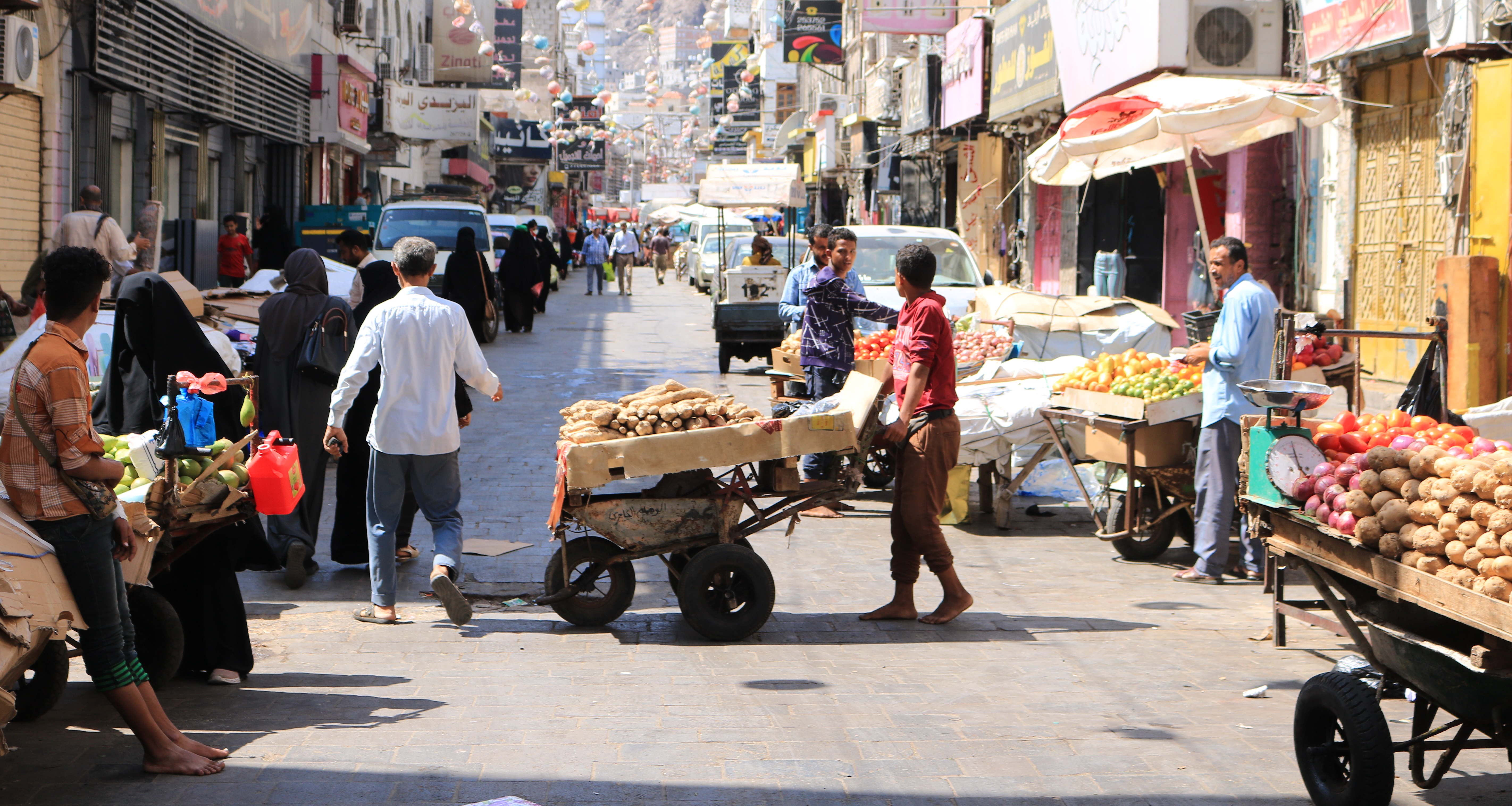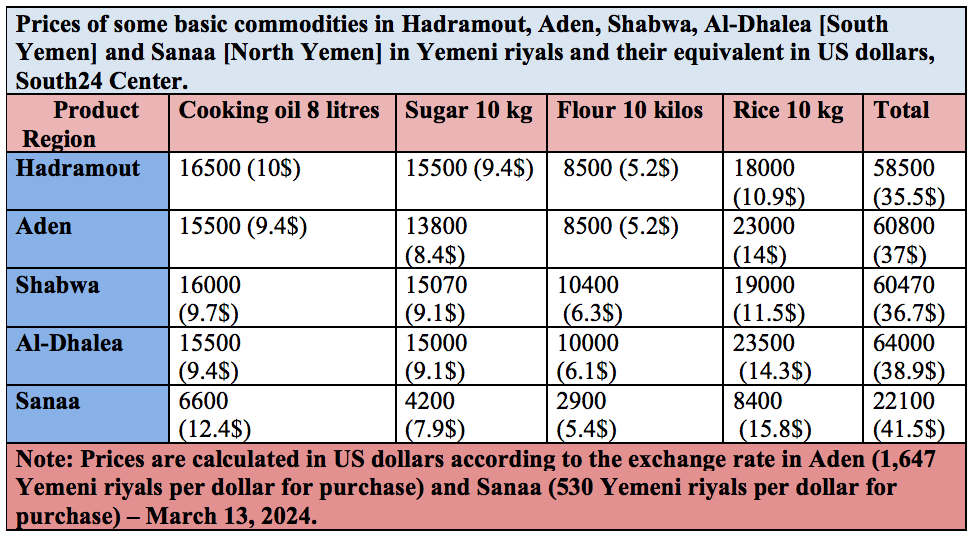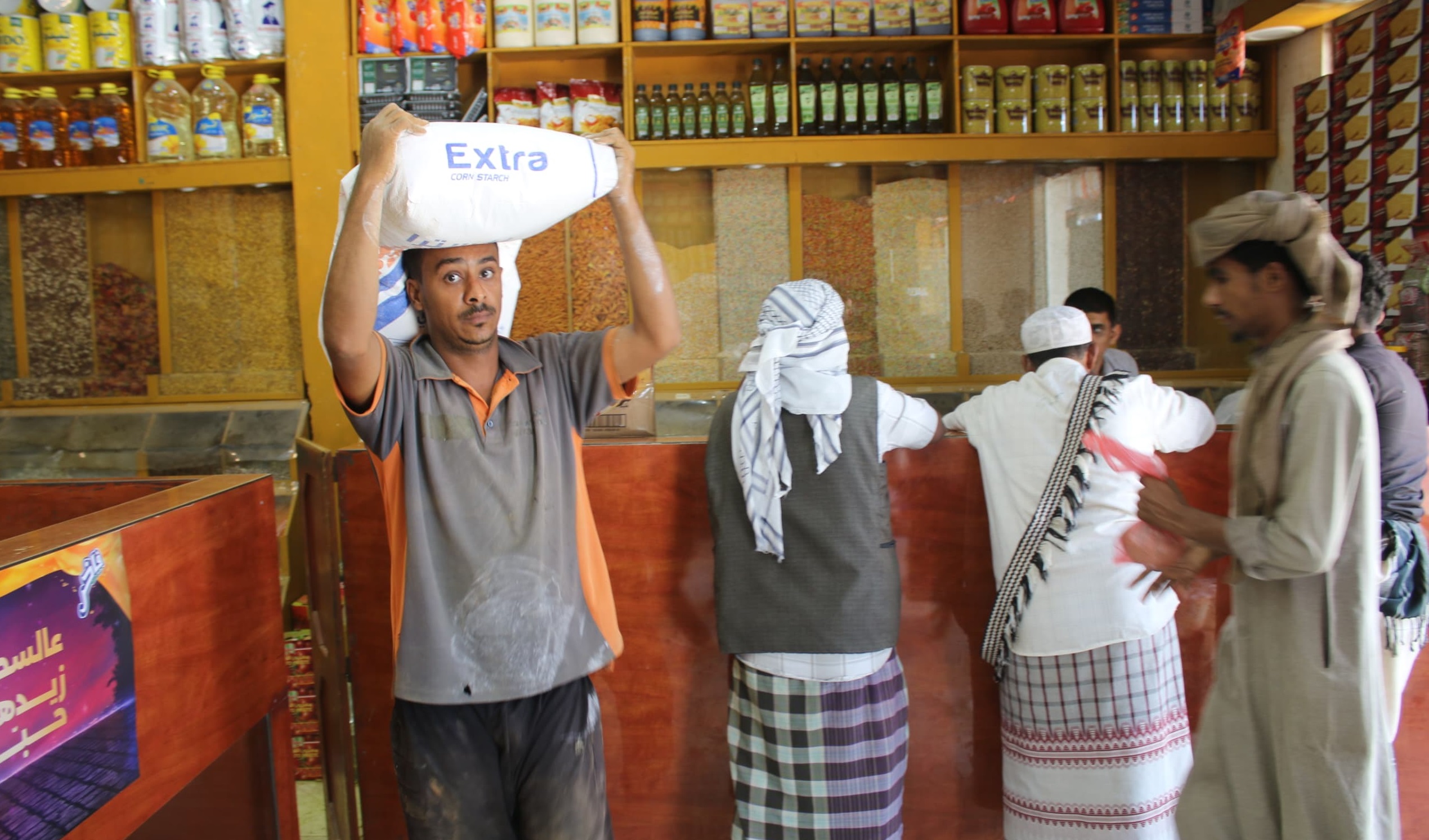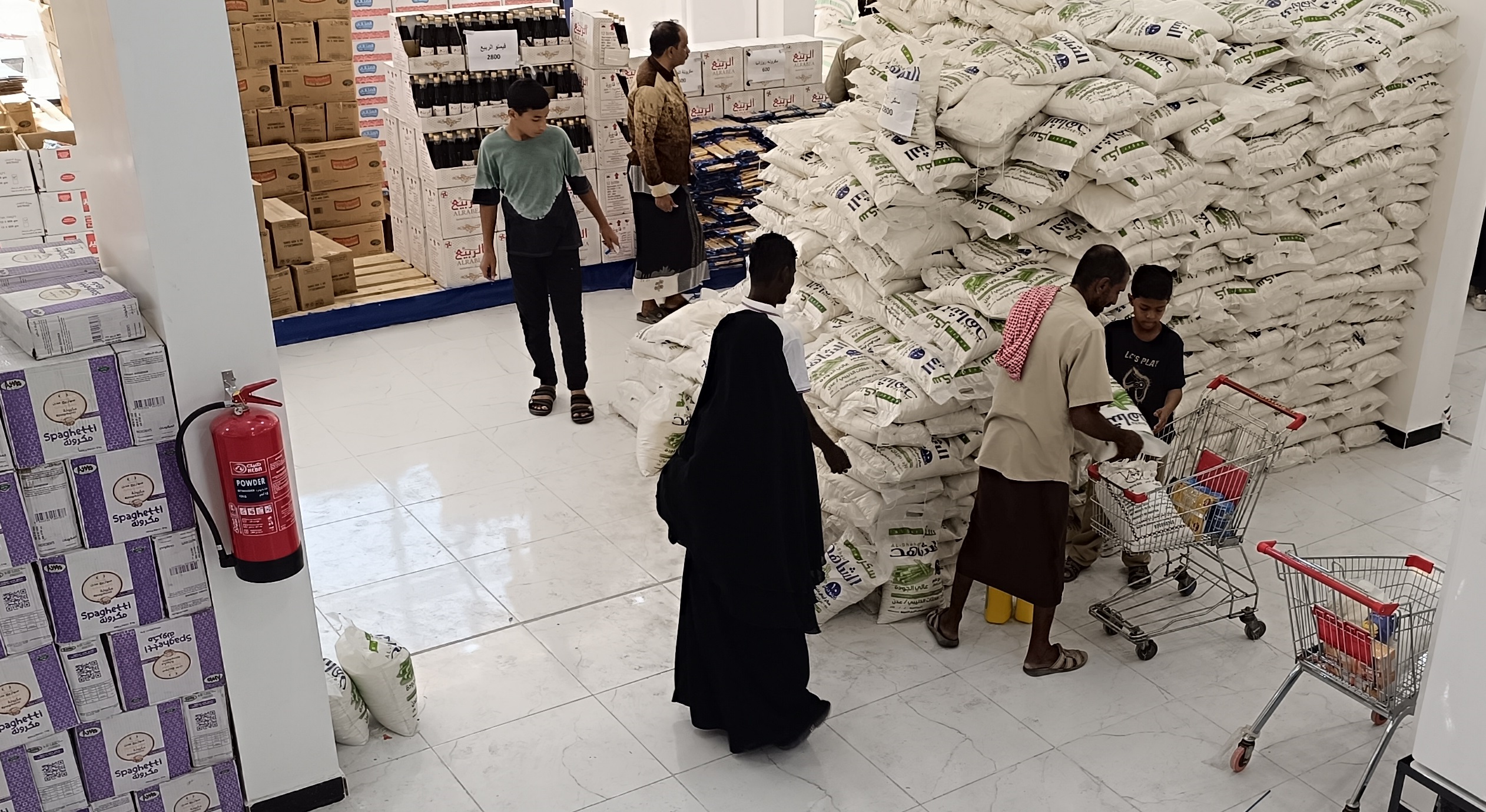
Local market in the capital, Aden, February 21, 2024 (South24 Center)
Last updated on: 20-03-2024 at 5 PM Aden Time

Abdullah Al-Shadli (South24)
The holy month of Ramadan has arrived in Yemen this year at a time when the economic and humanitarian crisis for the populace has worsened. This is due to the sharp decline in the value of the local currency against the dollar and the economic repercussions of the Houthi escalation in the Red Sea and Gulf of Aden against commercial and international shipping, which has affected vital supplies to Yemeni ports and sent food prices soaring.
South24 Center conducted field visits to several major cities in Yemen to assess the various aspects of the festering old crisis, and the latest one that has overburdened citizens and how it has affected Yemenis' celebration of Ramadan and made their joy incomplete.
Soaring Food Prices
Food prices have reached record levels in local Yemeni markets, impacted by two main factors: the dollar crisis and the repercussions of the Houthi military escalation in the Red Sea and Gulf of Aden. The following is a list of prices for four of the most important staple foods for Yemenis, according to a field survey conducted by South24 Center in five Yemeni cities.

Ahmad Al-Hamed, an educational employee living in Mukalla, Hadramout, told South24 Center that he is welcoming Ramadan this year with a modest table that lacks many of the main items that he and his small family used to savor every year. He said: "As a government employee, I find myself forced to give up some essential commodities because of the high prices. I am also constantly worried about not getting my salary regularly."
In Shabwa Governorate, Mahmoud Baqtami, who works as a teacher in an educational institute, is experiencing a similar situation. He told South24 Center that he is unable to buy many of his needs. He said: "It has become difficult for us as citizens to meet our basic needs and provide daily meals for our families. We are struggling with all this despite having work; so what about those who cannot find work or are unable to work for any reason?"
 Citizens buying food commodities in the city of Ataq in Shabwa, February 24, 2024 (South24 Center)
Citizens buying food commodities in the city of Ataq in Shabwa, February 24, 2024 (South24 Center)
Hussein Abdulrahman from Aden confirmed that he is facing great difficulty in meeting the requirements of Ramadan this year. He told South24 Center: "In the past, we used to give up some luxuries in Ramadan in exchange for other luxuries that we considered more important. Now we are forced to give up essential food commodities". "It is truly a tragic situation," he added.
In the Houthi-controlled city of Sanaa in North Yemen, the situation is no better, if not worse. A young man Majid Ahmed, who spoke to South24 Center under this pseudonym for fear of Houthi persecution, said that food prices are very high despite the stability of the local currency against the dollar. "If we compare food prices according to the dollar exchange rate and purchasing power, we find that they are very close to the prices in Aden and sometimes even much higher," he added.
 Citizens buying food commodities in the city of Mukalla, Hadramout, February 28, 2024 (South24 Center)
Citizens buying food commodities in the city of Mukalla, Hadramout, February 28, 2024 (South24 Center)
Ghalib Ahmed, a young man from Al-Dhalea Governorate, points out that "with the approach of Ramadan, the people are facing great difficulties in securing their needs." He told South24 Center: "In addition to the high food prices, Al-Dhalea lacks basic services such as electricity and water."
The Dollar Crisis and Houthi Escalation
On Wednesday (March 13), the US dollar exchange rate reached 1,647 Yemeni rials for buying and 1,658 rials for selling, the lowest point for the national currency since December 2021 when the US dollar exceeded 1,750 Yemeni rials. The halt in government oil exports since October 2022 due to Houthi attacks on the Southern ports of Hadramout and Shabwa is one of the main causes of the crisis in the local currency, as the oil sales revenue in foreign currency used to cover the bulk of the Internationally Recognized Government's expenditures.
In addition to the dollar crisis, recent events in the Red Sea and Gulf of Aden following the Houthi military escalation have exacerbated the economic crisis in Yemen. In January, the shipping price of a 40-foot container from China to Aden port rose to $9,950 per container, as compared to the shipping price of $3,000 last November.
Related: Houthis Naval Attacks Threaten Yemenis with More Hunger
In a press statement, Mohammed Alawi Amzarbah, Chairman of the Board of Directors of the Gulf of Aden Ports Corporation, said that marine insurance fees, which are imposed by marine protection clubs on ships and tankers arriving at the government ports in Yemen, have increased by 200% from what they were before the Houthi attacks on ships in the Bab al-Mandab Strait and the Red Sea.
On February 19, the Houthis fired two anti-ship missiles at the American grain ship ‘Sea Champion’ in the Gulf of Aden while it was en route to the Port of Aden. Though the attack damaged the ship it continued its journey to Aden Port. The US State Department said that the ship "was carrying corn and other food supplies to the Yemeni people in Aden."
Despite the Houthis carrying out over 60 similar attacks on ships, this attack has raised concerns about the Houthis' targeting of food and aid supplies to residents of South Yemen, a move that the Southern Transitional Council has warned against.